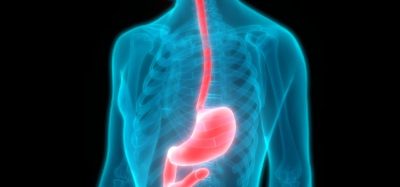CHMP recommends five medicines for approval in latest meeting
Posted: 16 November 2020 | Hannah Balfour (European Pharmaceutical Review) | No comments yet
The European Medicines Agency committee reports its November findings, including five drugs recommended for marketing authorisation.


The European Medicines Agency (EMA’s) Committee for Medicinal Products for Human Use (CHMP) has recommended five new medicines for approval and six extensions to therapeutic indications in its latest meeting.
The committee adopted positive opinions for:
- Phesgo (pertuzumab/trastuzumab) as a treatment of early and metastatic breast cancer.
- Roclanda (latanoprost/netarsudil) for the reduction of elevated intraocular pressure (IOP) in adult patients with primary open-angle glaucoma or ocular hypertension for whom monotherapy with a prostaglandin or netarsudil provides insufficient IOP reduction.
- Xofluza (baloxavir marboxil) for the treatment and post-exposure prophylaxis of uncomplicated influenza also received a positive opinion from the CHMP.
- The biosimilar medicine Onbevzi (bevacizumab), as a treatment for carcinoma of the colon or rectum, breast cancer, non-small cell lung cancer, renal cell cancer, epithelial ovarian, fallopian tube or primary peritoneal cancer and carcinoma of the cervix.
Following re-examination, the CHMP also recommended granting Elzonris (tagraxofusp) marketing authorisation for the treatment of blastic plasmacytoid dendritic cell neoplasm (BPDCN) – a rare and aggressive type of acute myeloid leukaemia – under extraordinary circumstances and for a limited indication in patients who have not yet received any treatment for BPDCN (first-line treatment).
Additionally, the CHMP also recommended that the indications of Kyprolis, Pradaxa, Tivicay, Trimbow, Xarelto and Xyrem be extended.
Following a request by the applicant, the CHMP re-examined the application of Gamifant (emapalumab) and confirmed its previous decision from the July meeting to deny granting marketing authorisation. The application is for Gamifant as a treatment for primary haemophagocytic lymphohistiocytosis (a genetic disease characterised by an overactive immune system) in children under 18 years of age.
Drug safety recommendations
Nitrosamines
The CHMP also reported that it has aligned its recommendations for limiting nitrosamine impurities in sartan medicines with its recommendations for other classes of medicines. The change means these limits will now apply to the finished product, instead of the active ingredients. These limits are based on internationally agreed standards (ICH M7(R1)) and should ensure that the excess risk of cancer from nitrosamines in any sartan medicines is below 1 in 100,000 for a person taking the medicine for lifelong treatment.
Ulipristal acetate 5 mg
The committee has recommended restricting use of medicines containing ulipristal acetate 5 mg (Esmya and generic medicines) because of cases of serious liver injury. The medicines can now only be used to treat uterine fibroids in premenopausal women for whom surgical procedures (including uterine fibroid embolisation) are not appropriate or have not worked. The medicines must not be used for controlling symptoms of uterine fibroids while awaiting surgical treatment.
Withdrawals of applications
Marketing authorisation applications were withdrawn for Puldysa (idebenone), a treatment of Duchenne muscular dystrophy; Roctavian (valoctocogene roxaparvovec), for the treatment of severe haemophilia A; and Tibsovo (ivosidenib), for the treatment of acute myeloid leukaemia.
Related topics
Anti-Cancer Therapeutics, Drug Safety, Impurities, Regulation & Legislation, Therapeutics, Viruses
Related organisations
EMA's Committee for Medicinal Products for Human Use (CHMP), European Medicines Agency (EMA)
Related drugs
Elzonris (tagraxofusp), Esmya (ulipristal acetate), Gamifant (emapalumab), Onbevzi (bevacizumab), Phesgo (pertuzumab/trastuzumab), Roclanda (latanoprost/netarsudil), sartan, Xofluza (baloxavir marboxil)









